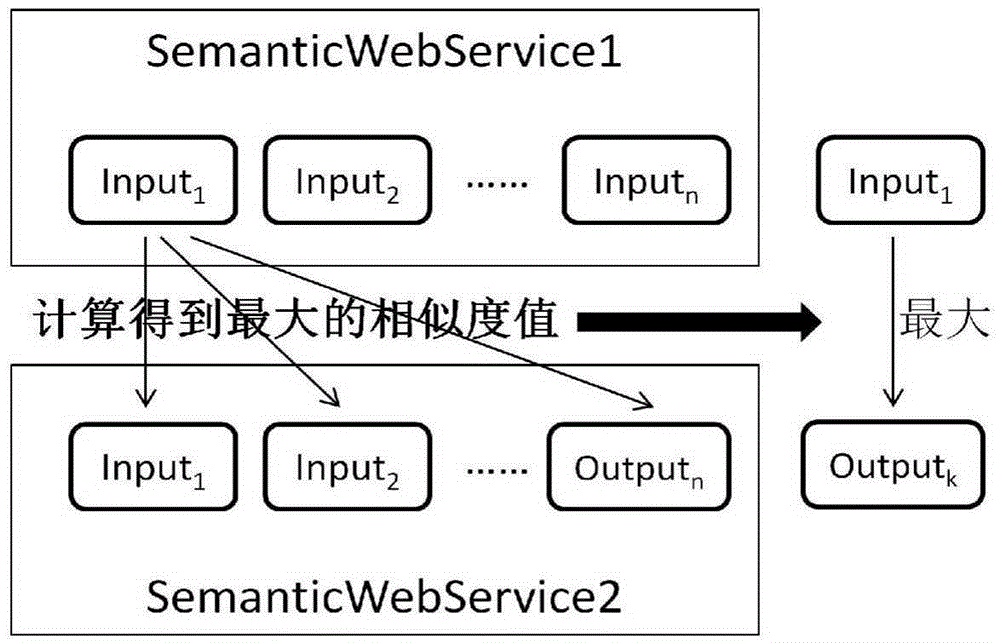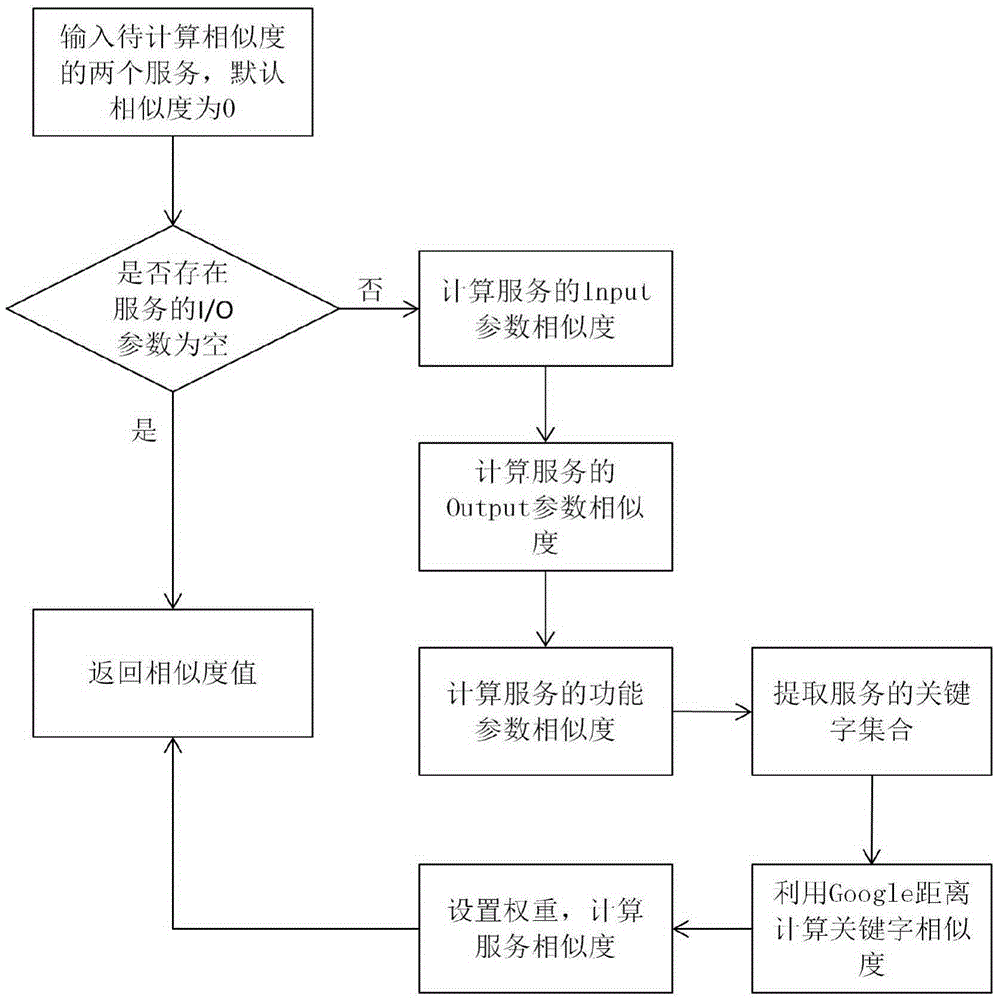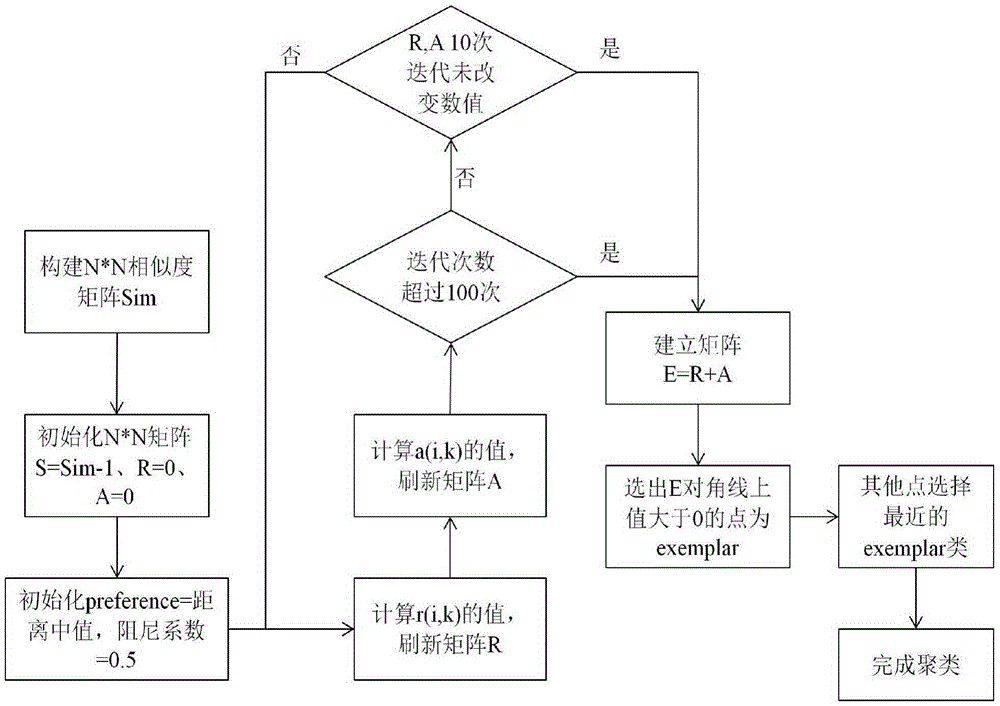Similarity based semantic Web service clustering labeling method
A web service and similarity technology, which is applied in the field of semantic web service clustering labeling based on similarity, can solve problems such as local optimum and slow convergence speed
- Summary
- Abstract
- Description
- Claims
- Application Information
AI Technical Summary
Problems solved by technology
Method used
Image
Examples
Embodiment Construction
[0064] In order to make the object, technical solution and advantages of the present invention clearer, the present invention will be described in further detail below in conjunction with the accompanying drawings, but the implementation and protection of the present invention are not limited thereto.
[0065] figure 2 Flow chart of similarity calculation for Semantic Web Services. The calculation of the similarity of Semantic Web Services includes two parts: function parameter matching and keyword matching. figure 2 The described process is:
[0066] Step 1, input two services whose similarity is to be calculated, and their similarity is 0 by default;
[0067] Step 2, determine whether the I / O parameter of the service is empty, if so, return to the default similarity, end the process, if not, continue to step 3;
[0068] Step 3: Calculate the similarity of the Input parameters and Output parameters of the semantic Web service, and combine the calculated values of the t...
PUM
 Login to View More
Login to View More Abstract
Description
Claims
Application Information
 Login to View More
Login to View More - R&D
- Intellectual Property
- Life Sciences
- Materials
- Tech Scout
- Unparalleled Data Quality
- Higher Quality Content
- 60% Fewer Hallucinations
Browse by: Latest US Patents, China's latest patents, Technical Efficacy Thesaurus, Application Domain, Technology Topic, Popular Technical Reports.
© 2025 PatSnap. All rights reserved.Legal|Privacy policy|Modern Slavery Act Transparency Statement|Sitemap|About US| Contact US: help@patsnap.com



